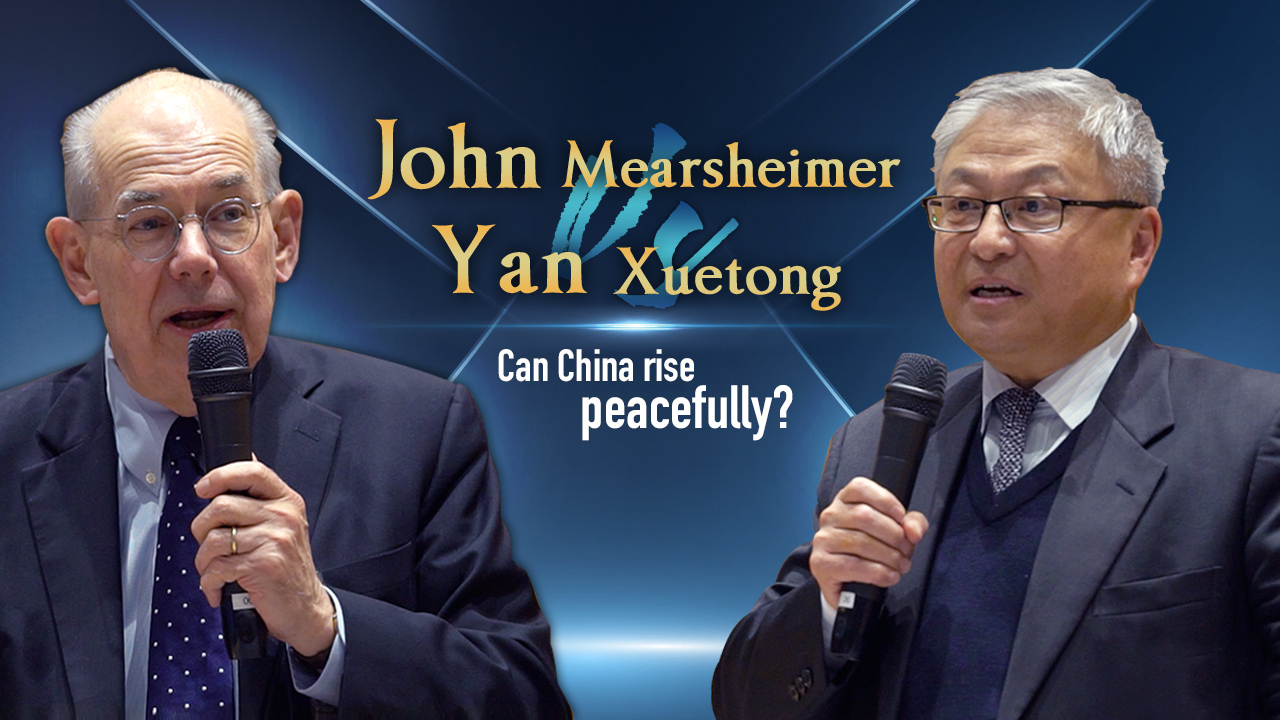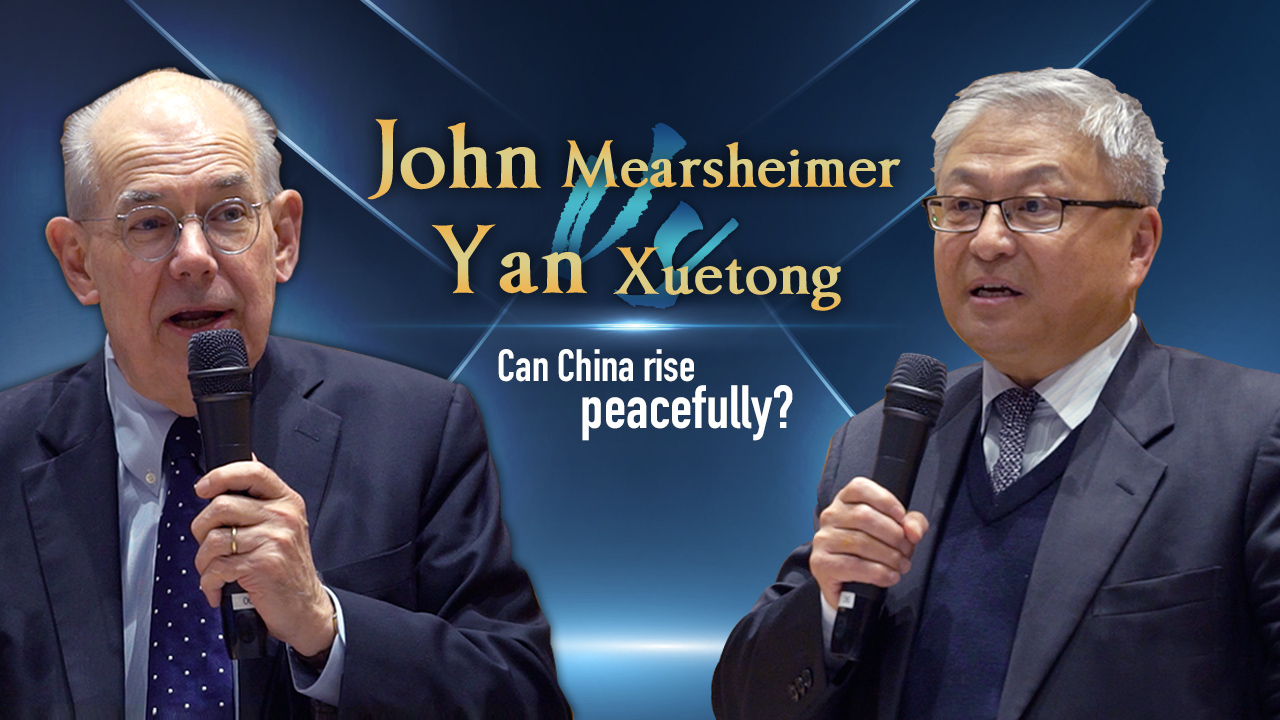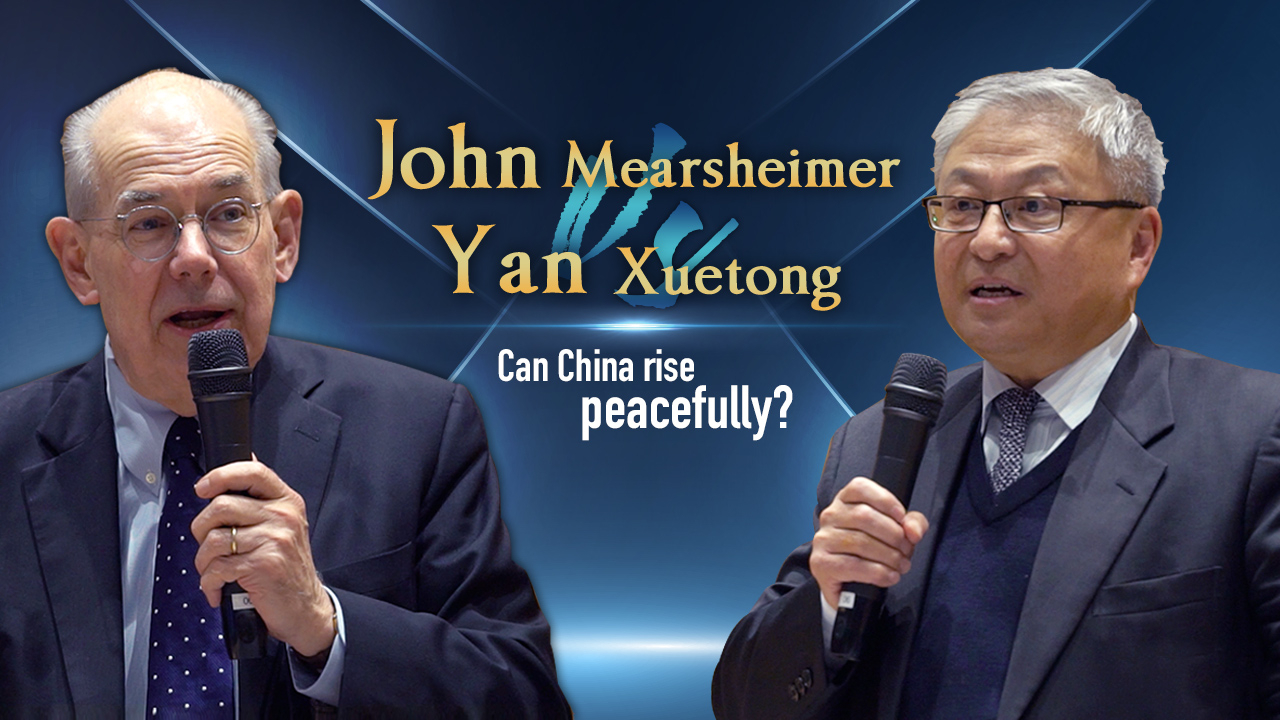
Editor's note: Huang Jiyuan is an opinion editor with CGTN Digital. This article is based on the debate at Tsinghua University on October 17 between Professor John Mearsheimer of the University of Chicago and Professor Yan Xuetong of the Tsinghua University. The article does not necessarily reflect the views of CGTN.
According to John Mearsheimer, professor of political science at the University of Chicago, the U.S. has been trying to "remake the world in America's image" since the end of the Cold War. Its highly ideological foreign policy doctrine has led each U.S. administration in the last three decades to make attempts at remaking other countries into liberal democracies, integrating them into the international system, and supporting the proliferation of international institutions.
Then came Donald J. Trump.
"Liberalism trumped by nationalism and realism, especially by nationalism". This is Professor Mearsheimer's summary of the end of the American crusade. Whether Donald Trump thinks in these terms or not, he does embody such ideology and approach to politics. He ran an anti-liberal democracy campaign with heavy focus on the distrust of international institutions and the free trade regime. After he came into office, he targeted U.S.'s military alliances, foreign adversaries, disregarded human rights, and hinged his policies on whether the move will benefit the U.S., especially financially.
However, Donald Trump doesn't exist in vacuum. Nationalism pushing back against liberalism and U.S. crusade has been long in the making. There are two sides to the story. First, Mearsheimer points to the fact that President Trump's recent predecessors had tried to shape the world in America's image. The Bush Doctrine and the entire U.S. foreign policy in Middle East, the expansion of the EU and NATO, and engagement with China have all turned out to be different from what the policymakers have envisioned. American people had enough of spending moneys and sacrificing soldiers for countries thousands miles away and brought no reward for the U.S. Trump saw this, he tapped into this, and he landed in the White House because of this.
04:31

And secondly, those on the receiving end of U.S.' crusade has also produced nationalism that run against the U.S.' liberalism. No countries like to be intervened in their own affairs. China, Russia, and other countries who have been targeted by U.S.' desire to reshape the world are now full of nationalistic sentiment that despises U.S. intervention. The interference in Russia's elections, in Hong Kong, Xinjiang, and Tibet have all incited nationalism. This becomes the strongest pushbacks against American liberal crusade across the globe.
However, to credit the end of the crusade to nationalism and realism might not paint the full picture. Professor Yan Xuetong of Tsinghua University argues that individual leadership style is incredibly important in international politics. And Trump doesn't lack any individuality. From his Twitter to many of his unfiltered public remarks, one cannot dismiss the possibility that Trump himself should be credited with the end of American crusade.
02:29

Trump is a businessman through and through. His political conduct is modeled based on his business experience. Business is based much more on financial benefits than ideology. As such, it is not unnatural for Trump to be less ideologically driven, but more profit-oriented. His personal belief and way of conduct might be inherently contradictory to the U.S.' overarching foreign policy principles. Therefore, it might very well be the fact that it is Trump himself single-handedly ended the American crusade.
Whether it's the nationalism or Trump's personal style, America is no longer the crusade state that it is. With a less focus on ideology, but more on the practicality of making lives better for the people, the world might just benefit from this change.
(If you want to contribute and have specific expertise, please contact us at opinions@cgtn.com.)